#Napoleonic Rules
Text

diabolical mix of characters right here
#having the most capitalist and the most communist ponies in the same frame . yeah#flam > flim i dont make the fucking rules#also sunburst is LITERALLY ME none of you get him like i do#trixie is also literally me but in a different way#flame the most though#wof#wings of fire#anomalocaris#anomalopost#frev#french revolution#napoleonic#napoleonic wars#mlp#my little pony#winter wof#napoleon#napoleon bonaparte#trixie lulamoon#clearsight wof#sunburst#chameleon wof#flam mlp#flim flam brothers#but only flam#starlight glimmer#maximilien robespierre#robespierre#flame wof#rave art
314 notes
·
View notes
Note
can I suggest Pauline Bonaparte? 🥺

Hello !! Thanks for the request <3
Here's a small portrait of Pauline I did quickly, I didn't know what I should do for the background so I tried to improvise .. ?
I should draw more women, thank you so much for this request !!! 🫶🫶
I'm currently working on my other requests, as well as working on some of my personal pieces. I'm finally having more and more free time recently, I can't speak for september though, as we're supposed to go on a bivouac at work.
111 notes
·
View notes
Text
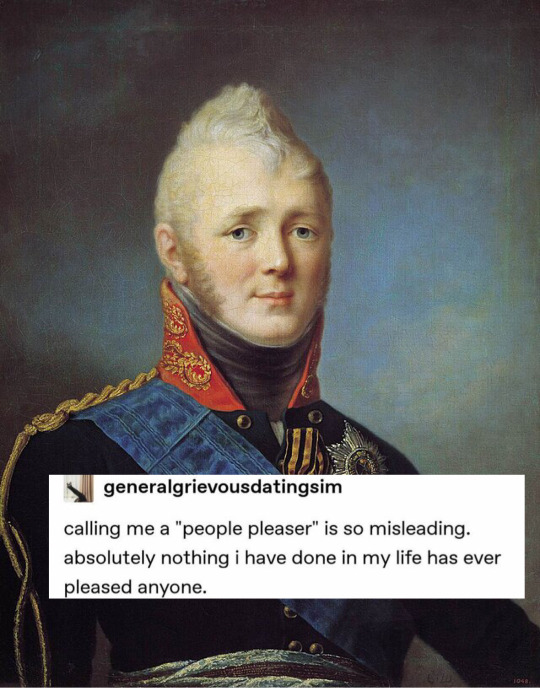
#well he tried#alexander i of russia#tsar alexander i#alexander is always like if even 1 person dislikes something I did I will cry#like babygirl you’re so unsuited to rule it’s hilarious#napoleonic wars#history memes
59 notes
·
View notes
Text



Sharpe's World Tour came to me in a dream
#richard sharpe#sharpe#sharpeedit#sharpedit#patrick harper#knew it would ruin the world tour#laugh rule#jokes#memes#sharpe memes#my edit#perioddramaedit#onlyperioddramas#napoleonic wars#sean bean#daragh o'malley#sharpe's regiment
51 notes
·
View notes
Text
Time Travel Temeraire snippet
At first, Laurence assumes he's dead.
It's a natural conclusion. He remembers dying, after all.
He and Tenzing were at a function hosted by Wellesley. They were mostly there to support the dragons. Temeraire had long abandoned them to quarrel with Perscitia in the courtyard, with half a dozen ferals watching like it were a jousting match. Wellesley had laid out his grounds to allow room for dragons and men to mingle, but a good portion of the guests retreated inside to avoid the raised voices of the dragons.
Laurence wonders how Temeraire felt about that, later. About not seeing.
He was stabbed. He barely remembers it – just a quick pulse of pain in his chest, looking down. Red blooming over his coat.
Then he was on the floor. People screamed. Tenzing appeared, grappling with a tall and finely-dressed man; he used a dinner-knife to punch a hole in the stranger's throat, in a fantastic spray of blood, and dropped the body at once to kneel by Laurence's side.
He remembers Wellesley barking orders – bandages, water, a hot knife. Have to cauterize it, he'd shouted. Keep pressure -
But Tenzing never spoke. Just pressed down on Laurence's chest, over the wound, without particular panic. Laurence still remembers the grim resignation on his face; Tenzing knew what was coming. Laurence was glad to have him there when he died.
Then Laurence woke up.
The world sways in a familiar way, a rhythmic motion that Laurence registers on a soul-deep level. He's on a ship. But why? Where is Tenzing, Temeraire? Why would they put him on a ship?
“I think the fever's breaking,” says a voice. A naval doctor, disheveled and salt-stained, with long scars down his bared arms. “Oh, and awake too!”
“Well thank Christ,” says another man. One Laurence recognizes.
It's Captain Gerry Stuart – but he looks different, younger than the last time Laurence saw him, with smooth skin and dark curly hair.
Gerry died two years ago.
“Well, Lieutenant! You gave us a scare – how are you feeling?” Gerry asks.
“It's Admiral,” Laurence corrects rather than all the other things he does not dare ask. He hates the title foisted upon him; but it's at least more comprehensible than Lieutenant, and he clings to that rather than demand where did you come from.
Stuart throws back his head to cackle, though the concern doesn't leave his face. “Still perhaps a bit feverish, I think!”
“That might be the laudanum,” says the doctor, also amused. “Why don't you sleep a bit more, Lieutenant?”
“But where is Temeraire? Or Tenzing?”
“I can only assume you had some very vivid dreams,” Stuart chuckles. “You were babbling and babbling for Temeraire – isn't that a ship?”
“Perhaps the flagship of his fleet,” suggests the doctor, and Stuart laughs again. “Get some rest, Mr. Laurence. Holler if you need me.”
They both exit the sick-berth. Laurence stares blankly at the door.
What?
Laurence pats his chest. No wound. He looks down, startled by the pale thinness of his fingers, his youth-soft skin.
Well; not soft. Callouses cover his hands. But even these patterns are different – hard skin in places where he would hold a sword, or pulls ropes. His hands should be more wrinkled, yes; but these callouses faded years ago.
“Where am I?” he asks when the doctor returns. “And what is the year?”
“The year? 1793. You don't remember?”
1793. Laurence was 19 in 1793. A lieutenant for two years, on the Shorewise.
The doctor narrows his eyes. “What's my name, lad?”
Laurence swallows. His stomach churns; for the life of him he can't remember.
The doctor rushes off to retrieve the captain.
_____________________________
Laurence is diagnosed with brain fever, and partial amnesia. Gerry is horribly guilty about laughing, earlier; Laurence could not care less. He is given strict orders to stay on bed-rest for another week, in hope his strength will recover – and his mind.
Laurence doesn't think he'll have any issues working – he's forgotten many of the people around him, true, but he may never forget the way to run a ship. He's far more concerned with learning what happened.
From all appearances, it is indeed 1793. France is undergoing riots, and declared war against Britain in February. Temeraire has not hatched. Napoleon is probably a corporal or general himself, at this point. If he exists at all. God knows, perhaps Laurence is only mad.
But he doesn't feel mad. His memories are too vivid to be mere fever-dreams. A man cannot dream up twenty years of life!
But neither can a man go back to his youth, and live it all again.
I have a dragon, he thinks of saying. There is no war, because I captured Napoleon – an unknown man who makes himself emperor.
Mad. It sounds mad even to Laurence himself. But to imagine that Temeraire was a fever-ridden dream... Tenzing and Granby and China, all of it...
Laurence doesn't share his turmoil with anyone – not even with Gerry, who checks on him fretfully. After a week the doctor declares him well enough, physically. He's paired always with another lieutenant for the first few days on duty, and his shipmates watch him carefully for signs of permanent debilitation; but aside from a moment or two of hesitance, Laurence competently resumes his duties. The oversight lessens.
Laurence thinks about writing letters.
He thinks about writing to Tharkay's late father, who ought to still be alive, inquiring after his son. He thinks of writing to Prince Mianning, asking about the health of Lung Tien Qian. He thinks of writing to young Midshipman Granby, his unwed brother, his dead father...
Not all of them would reply. But he could ask questions. Could verify the truth of things. Unless this, instead, is the delusion.
Is he in 1793, imagining the future? Is he in the future, imagining the past? Or maybe he is already dead, and this is the reality of hell. He came here burning with fever, and now he burns with fear. Surely that is it's own form of torture.
Laurence is ironically given the task of tutoring the midshipman and lieutenant-hopefuls more than any other duty as the weeks pass; his crewmates still look askance, and the more eager of the midshipman become protective. Laurence remains perfectly capable of command; it is only that he can't help but be absent-minded, sometimes, staring at all the crewmen that pass him like they are nothing but moving paintings. Images of a world that no longer matters.
One evening the midshipmen drag him away to a meal with the other officers. It's a noisy crowd; Laurence would find the friendly bustle comforting in another life.
One of the senior officers, Lieutenant Moore, waves him down as Laurence enters. Evidently they used to be friends, given his notably concerned behavior of late. Laurence can't remember the man, and has a sneaking suspicion he died too soon to make a lasting impression.Moore jostles him when Laurence sits at the long table. “Will! Did you get any letters with the last batch?”
A patrolling gunboat brought a satchel of letters just this morning. “I did not,” Laurence says. He's grateful for the fact. He'd found a few pieces of correspondence in his quarters that he dutifully sent on; he cannot imagine writing a letter now, in this confused state.
“Then you've had no news! Robespierre has gone mad. Madder than before, I suppose.”
“Robespierre?” asks Laurence blankly.
Lieutenant Moore double-takes, as does everyone else around them. “Good lord, Will, please tell me you remember Robespierre?”
Right... Robespierre's reign was brief, but this is when he led France. Some of the things the papers published...
Well, at least Laurence has a well-worn excuse for his ignorance. He plays up his malady: “Yes. I think I recall he was... French?”
Groans of horror mixed with amusement echo around the table. “...Well you aren't wrong,” says Moore, looking pained. “He has styled himself the 'President' of their Assembly, which is some stupid way of being king; the French are all mad about removing and adding words right now. I don't know how they expect anyone to hold a conversation.”
“We should... probably educate Mr. Laurence about the war at some point,” some midshipman mutters. Laurence doesn't recall his name.
Moore sighs again. “Anyway. Robespierre is a tyrant, of course. But he's elected someone else to rule France! Barely more than a boy, too.”
Laurence frowns; he doesn't remember what Moore's talking about. “Why would he do that? Did they capture one of the Bourbons?” Declaring himself regent of a child-prince would at least make sense.
“Well, at least you remember them. No; it is some nobody, a young soldier. Not even French! I cannot fathom it.”
It feels like Laurence has been dunked in ice.
For a moment he can't respond. “What was his name? The soldier.”
“Napoleon Bonaparte. He has been chosen as head of their new heresy, the 'Cult of the Supreme Being,' they're calling it; and now de facto head of the government, too. Must be a priest? I don't know, nothing the French are doing makes sense. I expect his little group will be as short-lived as everything else about these riots.”
But Laurence doesn't think so. “...Excuse me; I'm feeling a bit poorly,” he says, rising on wavering legs.
“Yes, you look it! Go on, we'll tell you about the war later...”
Laurence flees.
#posting bc i have no idea where this is going or if I'll do anything with it#it's just a funny stupid idea#Laurence travelling in time: I have gone mad. I am plagued by visions. God is punishing me for my Sins. This is purgatory.#Why is this happening? What moral course of action can I take under these circumstances?#Napoleon travelling through time: No idea how this happened. Neat. Time to hijack a cult and rule my country even earlier.#basic concept is Laurence has an ongoing existential crisis about his Place In The Universe#but also he is determined to stop Napoleon#who is delighted and fascinated they BOTH came back and sort of indulgently lets him try#basically resulting in Laurence becoming Napoleon's unwilling advisor frantically trying to do damage control in between bouts#of philosophical dread and despair#“Poor Mr Laurence was loyal before the brain fever we swear”#meanwhile Laurence is in France just trying desperately to make Napoleon Stop#etc etc#Temeraire
105 notes
·
View notes
Text
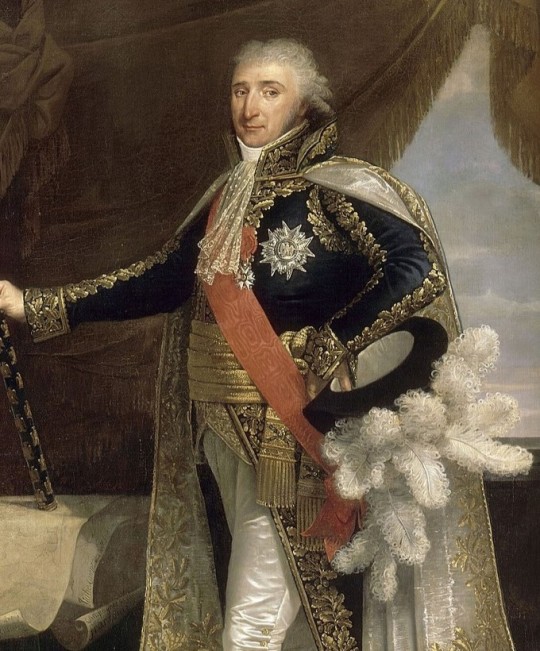


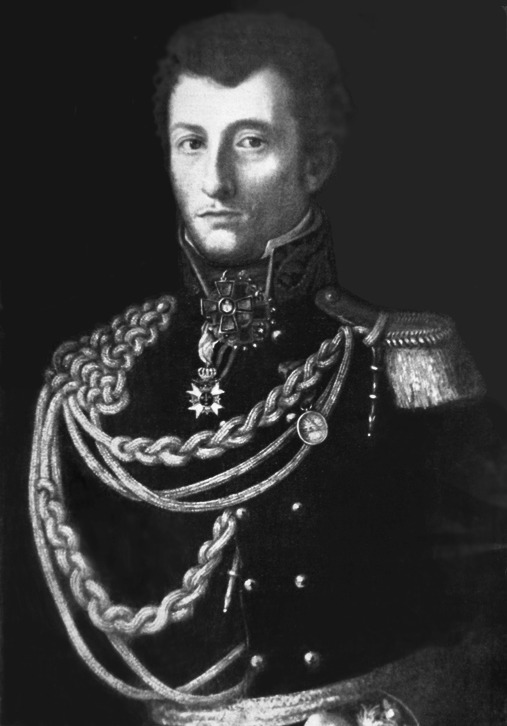

*aka "who are you most shocked/surprised/upset/aghast that we lost in the first round?"
Propaganda for Each:
Augereau:
“dude’s backstory is a fucking dungeons and dragons adventurer backstory, duellist who had to flee France after killing an officer, adventurered in Prussia and Russia and duelled and fought, also cannot physically stop swearing, what a man”
“Man of many talents even before the Revolution: noted swordsman and duellist, so talented that he accidentally killed a superior officer. Joined armies all over Europe, then taught fencing and dancing after he settled. Eloped with his first wife, whom he loved and respected. Partly responsible for victories at Castiglione and Arcole during the Italian campaign. Tied himself to a horse to lead his corps on Eylau (very metal). Has a very cool portrait where he points at a portrait of himself at Arcole
Gogol:
[no propaganda submitted]
Gros:
One of Napoleon’s main painters. Pioneer of French Romanticism. Inspired many artists such as Delacroix and Géricault. He was very pretty.”
Clausewitz:
"what could possibly be sexier than a prussian uniform and a lasting impact on military theory?”
Czartoryski:
"Decided that the way to free Poland was by having a threesome with Alexander and his wife.”
#napoleonic sexyman tournament#naps ironically lost by more than a percent#although coming back to win a redemption poll was so on brand for him that I almost tweaked the rules for it
47 notes
·
View notes
Text



lesbian engiespy because there’s never enough of it
Hdhdhd I love these bitches SO MUCH
#fan art#traditional art#sketch#team fortress 2#tf2#tf2 ship#tf2 spy#team fortress 2 spy#team fortress 2 engineer#tf2 engineer#engineer x spy#engiespy#rule 63#ne#napoleon complex#I CAnt help myself i least have to add dramatic ass eyelashes#fem spy#fem engineer#IM DYING THEY’RE SO PRETTY
74 notes
·
View notes
Text
I feel like if Napoleon and Josephine ever actually had a child, they probably would have been an evil genius. Honestly think God looked down and was like, no offense but no. I can’t let that happen. The combo of those two is so scary
#Josephine’s dark side scares me#and Napoleon was a savant#I imagine that they would have actually ruled the world lmao#Napoleon#josephine bonaparte#napoleon bonaparte#empress josephine#napoleonic era#19th century#history memes#history#Napoelonic era#frev#Napoleon meme#first french empire#France#France memes#text post#text post memes#funny#humour#humor#french revolution#napoleonic#french#mine#tumblr text posts#text posts
92 notes
·
View notes
Text

#tf2#team fortress two#team fortress 2#tf2 spy#tf2 engineer#engineer x spy#practical espionage#napoleon complex#my art#they gay#i dont make the rules
63 notes
·
View notes
Text
That one time, when Soult accused Joseph of treason… (Part 1)
… needs a long disclaimer, I fear, and I’m not sure if I’m the best person to give it, or if I’ve only properly understood the military situation.
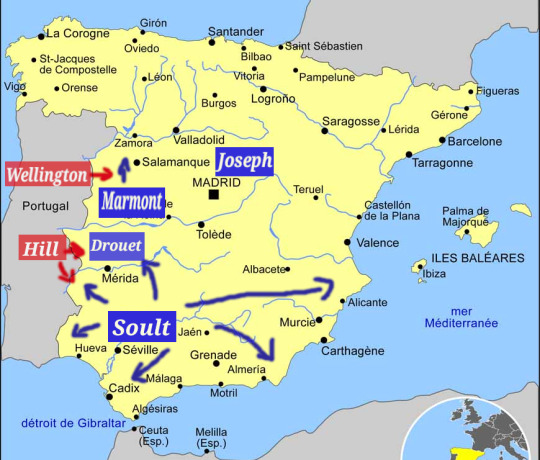
I’ve tried to explain it to myself in the most simplified way possible but I’m in no way sure that’s correct, so please, if somebody can explain it better, go ahead!
By spring 1812, the respective positions of the different armies were – I think - as shown in the map. Joseph was at Madrid, mostly undisturbed. At the border to Portugal, west of Madrid, was Marmont’s armée de Portugal, watching Wellington. In the south, Soult (armée du Midi) was all over the place, directing army movements from Estremadura to Murcia, running to whoever had last called for help, but mostly managing to keep things quiet. Between Marmont’s and Soult’s corps, keeping contact between them, there was Drouet’s corps d’observation of about 9,000 men, watching Hill’s British army across the border but not strong enough to go on the offensive. Not shown in the map: The region north of Madrid up to the French border (Valladolid, Burgos etc.) was all under French control.
The two main British corps could communicate freely and support each other at will, with the French usually only realizing it when it was too late. After the important border fortresses Badajoz and Ciudad-Rodrigo had fallen, both could march onto French controlled territory any time. Hill was ready to invade Andalusia, which is what Soult feared and why he had placed Drouet to watch him. At the same time, it was quite possible for Wellington to enter further north and threaten Marmont, which is what Joseph feared. And to Joseph’s credit, he was right, and Soult was wrong, the British adopted the second plan.
When it became clear that Wellington would be the one to act, Joseph wanted to reinforce Marmont’s army. He ordered Marmont to move north, in order to block Wellington’s path, sent orders to Soult to reinforce Drouet, and to Drouet to join Marmont. Drouet, however, would need to go to Madrid first and join Marmont from there (due to the Brits having destroyed the only bridge over the Tajo Drouet could have used).
At which point Soult protested that a) Joseph had no right to give orders to Drouet who happened to be under Soult’s command and b) this whole arrangement did not make the slightest bit of sense, as it left a huge gap in the French forces precisely where Hill’s army corps was lying in wait. Instead of moving north, Marmont should move south, thus getting closer to Drouet and Soult, and let Wellington try to move in – who would then get between two fires, from the French forces in Northern Spain and from Marmont’s corps, and would probably not even budge for fear of having his retreat cut off.
To which Joseph replied that a) he was the king here and that Napoleon on leaving for Russia had put him in command and b) thus he was to be obeyed, c) he was the king here, d) if Soult did not do as he was told he would be held accountable for anything bad that happened (which Soult knew he would be anyway), e) Soult was to either send Drouet to support Marmont, via Madrid, or to immediately send 10,000 men from his armée du Midi from Sevilla to Madrid, which would then join Marmont. And just in case Soult had forgotten: Joseph was the king here!
To which Soult replied that he had no 10,000 men to spare, because of the 20,000 men that Napoleon had intended as support for the Armée du Midi, not a single one had ever reached Sevilla, as they had all been taken in by the Armies in the North and by Joseph in order to guard Madrid. So his army was currently 20,000 men short, and if he had to deploy another 10,000 men, he could not guard Andalusia anymore and would need to evacuate it, which he would not do without an express order from the king, and that in any case he was offering his resignation.
To which Joseph replied that, being the king, he authorised Soult to evacuate whatever portion of Andalusia he deemed necessary to evacuate but that Soult was to immediately march to Madrid 10,000 men in support of Marmont’s army, or bear the consequences, and as to his resignation, Joseph would be only too glad to have it, as Soult had never shown the slightest inclination to respect Joseph’s authority, Joseph being, just in case Soult had forgotten, the king and also officially in command of the French forces in Spain ever since Napoleon had left for Rus…
At which point Marmont shouted from Salamanca: Guys? Remember that Wellington bloke? Well, he’s kinda he-ere…
Which caused Joseph to do something really, really extraordinary: He took the 13- to 14,000 troops that he had apparently had sitting around Madrid playing cards all this bloody time, basically next door to Marmont, and marched with them to reinforce the latter.
Something that, as Napoleon would later state, he f-ing could have done two weeks ago. (Well, Napoleon did not use the f-word. At least not in his official correspondence.)
Unfortunately, Joseph’s decision being a last minute one, the movement following no previously agreed plan and communications being what they were in Spain, Marmont never learned of Joseph coming to his aid, gave battle and was beaten by Wellington. (Napoleon actually accused Marmont of not having wanted to share the glory and thus not having waited for Joseph, because he could not imagine that Marmont had been completely left in the dark about Joseph coming to support him.)
That event is called the battle of Salamanca, or des Arapiles in France. Joseph learned of the defeat while on the march, habitually blamed Soult, and instead of trying to gather the remnants of Marmont’s corps and face the British forces, retreated north. (Another thing Napoleon would later critisize him for.)
Wellington was now free to move on to Madrid, and Joseph and Soult got into another long discussion. Joseph declared that Southern Spain, so far kept mostly under control by Soult, had to be given up because it would not be possible to maintain a line of communications to the French forces in the north with Madrid gone. Soult on the other hand suggested Joseph should come to the South, to Andalusia, as long as it was still possible, from where they could try to redeem the situation and wait for reinforcements from France.
Of course Joseph wanted to hear nothing of that. So Soult, in August, really had to evacuate Andalusia, and the French-controlled territory in one go shrank down to some northern and eastern provinces (Suchet���s territory) at the coast.
It was at this point that Soult started to get suspicious about Joseph. As he writes in his memoirs:
The king in two words gave me the order to evacuate Andalusia. As if he had not even thought about it, he did not say anything about what was to be done with the sick […], all the material, the enormous artillery in front of Cadiz, the ammunition, the siege and fortification works etc. He did not tell me any more about what he would do in order to support my retreat.
This attitude (just get out of Andalusia and come north), this lack of premeditation and planning to Soult seemed incomprehensible – and that’s what made him think that maybe there indeed was a plan:
It never occurred to me that the king maybe did not see all the consequences as clearly as I did. This was probably an error of mine. […] I could not help but to consider some connections. From Cadiz I received many rumours about secret negotiations between the king and the Cortès [i.e., the insurgents]. I knew that the crown prince of Sweden [Bernadotte], brother-in-law of the king, started to adopt a hostile attitude to France, that he served as intermediary between the emperor of Russia and general Moreau […]
Add to this the curious lack of interest that Joseph showed for the evacuation of Andalusia, the - to Soult - incomprehensible orders Joseph had given about how to manoeuvre, almost as if he wanted to compromise the army and be forced to retreat, the fact that he was on well enough terms with the enemy Cortès of Cadiz to ask them to send him an honour guard, his mouvements after the battle of Salamanca, and the fact that, as Soult puts it “the little work [Joseph’s] administration had to do was usually in opposition to the interests of the French army”, and you have more than enough food for thought for a notoriously distrustful character like Soult to suspect Joseph might be up to no good. Soult seriously wondered if Joseph was ready to compromise French interests in order to be granted a separate peace and some smaller Spanish territory to rule over by the insurgents and/or the Brits.
And that’s when he wrote a letter to Napoleon, and to Clarke. But I’ll get to that at a later date in another post, because it’s really a lot to chew on.
#napoleon's family#joseph bonaparte#napoleon's marshals#jean de dieu soult#this surprisingly often reads like two five-year-olds squabbling over who gets to make the rules for the game in the sandbox#spain 1812#battle of salamanca#joseph and soult
34 notes
·
View notes
Note
I think my pet napoleon caught rabies from my lannes :(((
Rating: Fear not!
Napoleons can’t get rabies! Like possums, they have a lower body temperature than most mammals, so a Napoleon’s body doesn’t provide a suitable host for the virus. For similar reasons they also can’t get the Plague!
Napoleons are cleanly animals and most of the illnesses they can get aren’t transferable or contagious to humans.
The Lannes might need put down tho but, as always, this ain’t about any creature who isn’t a napoleon
#napoleon#is the napoleon cute?#Lannes#I also have a lot of older asks but I’m gonna be real this one amused me so it#went to the top of the stack. I don’t make the rules except I do
19 notes
·
View notes
Text

#lol#history lesson time#the french revolution yes they offed the royals#but then came napoleon who put europe thru a long era of fascism#of course they killed julius caesar#only to watch caesar augustus and every roman emperor afterwards rule as emperor for life#something tells me you can't murder your way to ending fascism#could be wrong maybe history doesn't repeat itself
2 notes
·
View notes
Text
it's funny how when you'll give actual explanations as to why people are racist or transphobic or something similar, like how that happens and why it's happening now out of all times, that go beyond "white people/cishet people evil" so many people will instantly attack you for "apologia"
I think it kinda comes from this idea that identity politics has pushed that people of the unmarked categories like male white and cishet can't possibly struggle with things in life. but economic crises, which we have been in for 16 years now, affect everyone that's not part of the ruling class. prolonged economic instability alienates people from the status quo, from established parties, rhetoric and such. they begin to look elsewhere for solutions. the powers that be know to counteract this with reactionary politics. using scapegoating they'll promise the return to an (often imaginary) better yesterday, the very definition of reactionary politics.
these ideas sound plausible and actionable. things used to be better after all. those scapegoats used to not be there (as visibly) after all.
the way of solving this isn't to go "waaahh people are evil and fascism is back, woe is me" but to a) point out that these reactionary politics are not going to solve the problem because they are not the cause b) point out the actual cause of the problem (capitalism) c) offer actual alternatives (organizing, strikes, expropriating the bourgeoisie, and eventually total labor democracy)
#and no fascism isn't back and it's not going to be back in most of the western world#there's a difference between a military or police dictatorship which is what the US might degenerate into under trump#and actual fascism#most of the things everyone points to as fascist aren't actually fascist they're just reactionary#even genocide isn't unique to fascism. israel for example is a liberal democracy and it's still committing genocide.#all you need for genocide is a class society. its political manifestation is irrelevant tho some forms are certainly easier to do a genocid#in#it's important to understand that so you have no illusions in liberal democracy which is a dictatorship of the bourgeoisie#fascism isn't this generally evil society that we are constantly at the brink of falling back into#it was a very specific historical phenomenon#in which the petty bourgeoisie were used by totalitarian reactionaries as a battering ram against the working class#to violently suppress labor organization strikes and the potential downfall of capitalism and the rise of socialism#that was its role in germany italy and spain#it wouldn't work anymore today in the western world because the petty bourgeoisie has dwindled in numbers#as they are doomed to in the monopolization process of capitalist market anarchy#they are no longer a significant percentage of the population and no longer have the numbers to suppress the working class like that#because that's what differentiates fascism from a military dictatorship for example#a military dictatorship is a small group of people violently wrangling control of the state from its current holders#and abusing ALL of society for their personal gain. including the ruling class. marxists call this bonapartism#because napoleon bonaparte was the first to do so under capitalism#most importantly this means a military dictatorship does not have a mass base and relies on ruling by the sword#which makes it highly unstable and turns all of society against it#fascism was so dangerous because it DID have a mass base! the petty bourgeoisie!#vast amounts of them were in total support of fascist rule and actively pursued it. it wasn't just a small group of people.#this made the systems a lot more stable and a lot more powerful because they had large parts of society at their bidding#that sort of power and stability can no longer occur because their social base has mostly disappeared#they can whip up enough reactionary anger in the working class to perhaps GET to power#but as soon as a fascist politician starts going after unions strikes wages#launching the incredibly direct attacks against the working class that fascism always did#that voter base is going to turn against them very quickly
3 notes
·
View notes
Text
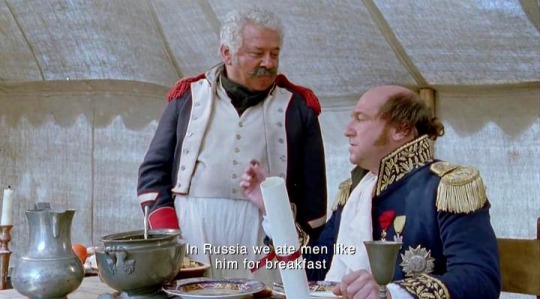

this had NO RIGHT to be that shady
#JEZU CHRYSTE#sharpe#Sharpe's siege#perioddramaedit#period drama#napoleonic wars#laugh rule#thekenobeeedit
7 notes
·
View notes
Text
Pax Britannica and Pax Americana
Britain held the British world order for 100 years after Wellington's landslide victory over Napoleon in 1815.
Its ill-fated successor, the United States, failed to seize its chance and nearly lost its hegemony to The Reds, but has yet to do so.
China is a country that only advocated Pax Sinica, which advocated hegemony in the Asian region, and has already perished in the Opium War, in which Britain won a complete victory.
China today is nothing more than a zombie ruled by the Communist Party, a fraudster. America, take it back! Why, breaking one dam is enough.
Rei Morishita
パックス・ブリタニカとパックス・アメリカーナ
イギリスは、1815年、WellingtonがNapoleonに完勝してから、100年のイギリスによる世界秩序を保持した。
その不肖の後継者、アメリカは、そのチャンスを捉えきれず、The Redsに覇権を奪われそうになったが、まだ完全には奪われていない。
中国はアジア地域では覇を唱えたパックス・シニカを唱えただけの国であり、すでにイギリスが完勝したアヘン戦争で滅びている。
現在の中国は、だから共産党という詐欺師が支配するゾンビに過ぎない。アメリカよ、奪い返せ!なに、ダムを一つ決壊させれば足りる。
#Pax Britannica#Pax Americana#Wellington#Napoleon#The Reds#Pax Sinica#hegemony#Opium War#China today is nothing more than a zombie ruled by the Communist Party#a fraudster.#Rei Morishita#dam
3 notes
·
View notes
Text
What you can use to ask inbox for:
Propaganda for your faves.
Anti-propaganda for their enemies (within reason)
Sending or recommending fanart of your faves. Just make sure you adequately tag the artist if you didn't draw it. Make sure people get the credit they deserve.
Recommendations for histfic of anyone in the tournament.
Requests for extra polls or brackets (no promises about if they will happen though)
Images you think should be added to the polls.
What will get a snarky response or be deleted:
Needlessly rude negativity.
Being rude to the admins.
10 notes
·
View notes